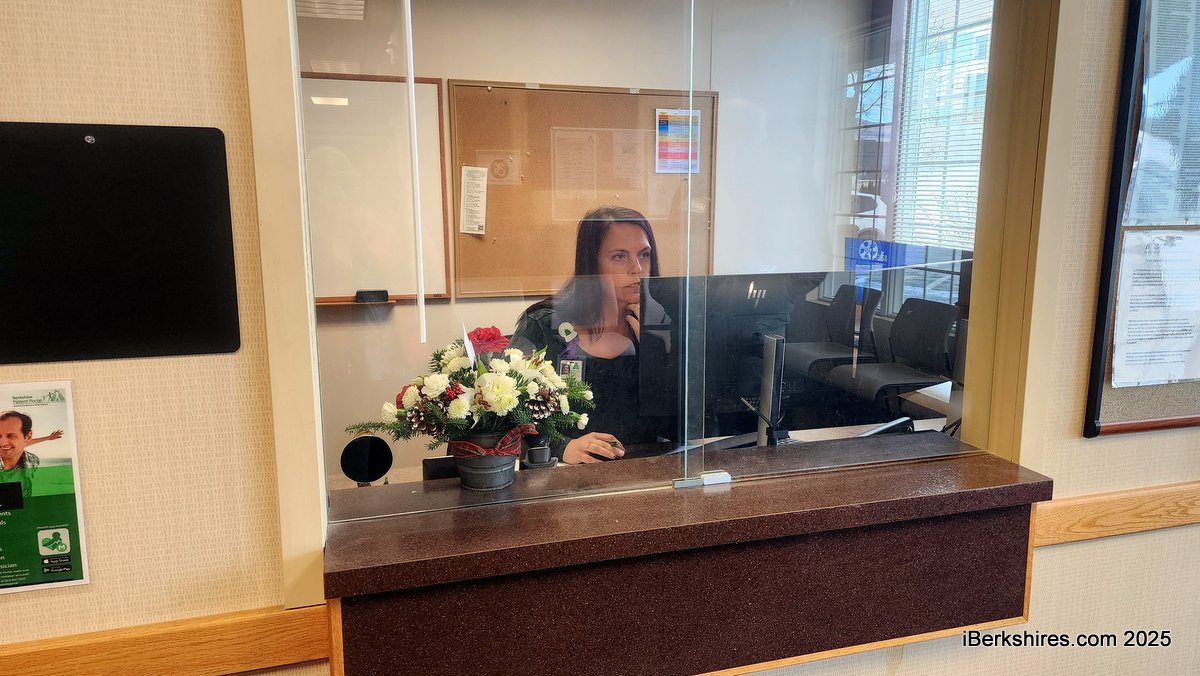Letter: Building Codes Put Homeowners in the Middle
 |
To the Editor:
I have to admit — I have no interest in showers. We bought one at Home Depot in Pittsfield and I never gave it a second thought until I received a violation letter from Ryan Contenta, Williamstown's building inspector. He noted that the glass had not been etched, which is against state code, he said.
The glass was labeled "tempered" with a sticker; and it had the telltale signs of being tempered (soft edges, etc.). The glass manufacturer was certified by ANSI, which the code recognizes as an authority on tempered glass. Intertek Testing Services had also studied the glass and certified that it met criteria. But alas, it had not been etched.
After about 10 hours of research, and calls to the state of Massachusetts, I came to understand a few things:
When the State Board of Regulations and Building Standards wrote this code, they also allowed for two exceptions, that is, an affidavit (or detailed stickers) could be provided by the manufacturer in lieu of etching, as long as it specified the company name, ANSI and the type of glazing used. However, for unknown reasons, Ryan Contenta omitted these two exceptions from his violation letter.
When I brought this to the Town Manager Bob Menicocci, he initially said the affidavit sounded reasonable, but quickly changed course after talking to Ryan Contenta. Why? We don't know. Ryan had reminded me that he has 20 years' experience in the field; perhaps he fed Bob this line and the town manager quickly backpedaled. So much for leadership— just do what your staff tells you. Funny, my architect made a huge mistake on the drawings, which we caught. He had also used that same "I have 20 years experience" line when he was trying to tell me nothing was wrong.
I raised the issue with the Williamstown Select Board, who replied with a chipper email saying, "thank you for your engagement with town government" and nothing more. Thanks Hugh Daley!
It's obvious to me that the state included the two exceptions because anyone with any knowledge of global economics knows the hundreds of shower manufacturers in the world will not research an obscure MA code before going to market. Clearly the state did not do the education or outreach necessary to manufacturers, and they knew this, so they included two exceptions to help homeowners comply.
By Ryan Contenta omitting these two options from his letter, he picks and chooses the most stringent aspects to enforce. But also, and perhaps more importantly, Ryan Contenta and the State of MA (Board of Regulations and Building Standards) puts consumers in the uncomfortable position of helping them to enforce their code. We bring the violating manufacturers forward (because showers impaling the good people of MA is a real problem! what! you haven't heard!) and the manufacturer must submit to the powers that be. I say "uncomfortable" because we, as homeowners, don't have the code knowledge, time, energy, etc. to go up against the state or someone who has made code reading his life.
A state appeal costs $150 and I assume involves driving to Boston. I could just return the shower, that is, I paid my contractor to install it, so now I could pay him to uninstall it, then pay for shipping, then buy a new shower (make sure it's Ryan Contenta approved and has the "RC" label; ask at Home Depot before buying), then pay to install that one and on and on.
When people lament the nanny-government and say we should be tearing up a regulation every day, not writing new, isn't this what they're talking about? Ryan Contenta's advice: I should get into shower advocacy. No, really, he said I should raise this with the Attorney General, because our AG should be wasting her time with showers. Heck, I could be the next Ralph Nader.
To say both Ryan and Bob gaslit me is an understatement. When I raised the two exceptions written in code, Bob told me that I was reading Federal Commercial code, and had it wrong. When I told him I was reading from www.mass.gov he didn't really say anything. Ryan never addressed the two exceptions and pretends they don't exist.
We don't need inspectors who are on a power trip. We need inspectors who understand the thrust of a regulation, which is — is the glass safe? Yes, we've established from the manufacturer that it is tempered safety glass, and actually, Ryan has never said otherwise. But consider this, anyone can etch some glass and say it's tempered. An affidavit from the company is actually a higher bar.
Just this morning, my wife emailed Ryan Contenta (again) for a written determination under R308.2 exception 1 regarding an affidavit. The state had advised us that we have a right to this. Ryan Contenta ignored the question in his response as he had done previously. If the state or local inspectors want to go after companies who aren't etching their glass, they can certainly do that proactively without putting homeowners in the middle.
Todd Fiorentino
Williamstown, Mass.
















